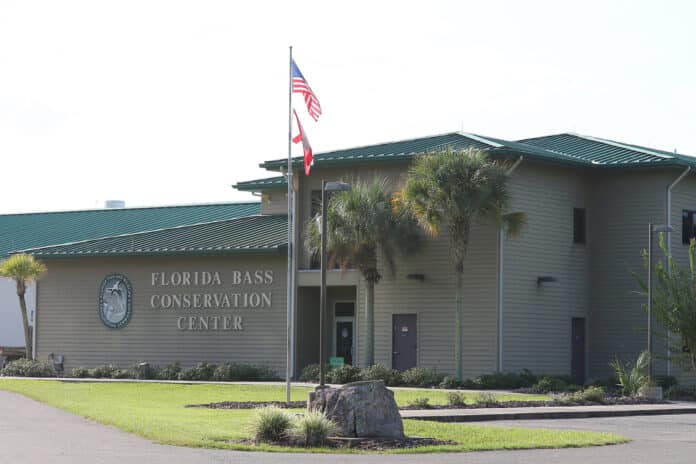Just twenty minutes past the intersection of FL-50E and 301 is the Florida Bass Conservation Center at Richloam State Fish Hatchery and it’s been there since 1965. It’s a place where those who love fishing can learn about the repopulation of fish that swim in local lakes and ponds.
“What we do is kind of like farming, we’re farming fish,” Hatchery Manager Rick Stout said. Rick Stout, he began his career with Game and Freshwater Fish Commission in 1981. In 1987 he came to Florida Bass Conservation Center as a member of the aquaculture team.
“We researched aquaculture and native species,” Stout said.
Aquaculture—the breeding, rearing, and harvesting of animals and plants in all types of water environments. (https://www.fisheries.noaa.gov/topic/aquaculture)
What does aquaculture have to do with Florida Largemouth Bass? Well, a lot. Nature can’t produce enough edible food for the world’s growing population. According to the National Oceanic and Atmospheric Administration (NOAA) the increase in global demand for seafood, the world would need to support 40 million tons of farm-raised products by 2030.
Although there are six species of bass in the state of Florida, the Florida Bass Conservation Center at Richloam State Fish Hatchery raises only one to restock Florida’s lakes and ponds. A unique bass found only in Central Florida; the Florida Largemouth Bass.
“Because our agency is by in large a conservation agency for fish and wildlife, our division is responsible for all the freshwater fish resources in the state. It is up to us to protect those unique genetics because once it’s gone, it’s gone, you can never get it back.”
This division of Florida Fish and Wildlife focuses on the genetics of this particular largemouth bass to ensure that what they produce isn’t causing that population any harm.
“Everything here we have is genetically pure. So what we stock (place in lakes and ponds) is historically correct. We enacted new rules back in 2010 to prevent people from bringing other genetic largemouth basses into the state to help protect that,” Stout explained.
When you visit the Florida Bass Conservation Center, there is a wealth of educational information. The upstairs visitors center includes an exhibit area showcasing a 1,700-gallon aquarium as well as an interpretive center overlooking the hatchery — the production tank area. This area is where you can learn the stages of breeding Florida largemouth bass. You can see up-close the concrete and fiberglass raceways, labs, and other hatchery equipment.
Another essential part of the hatchery is in the back of the center. One hundred eighty acres sectioned within the Withlacoochee State Forest that encompass 65 ponds are used to breed Channel Catfish, Striped Bass Hybrids, Black Crappie, Bluegill, Redear Sunfish, as well as other freshwater fish species. The fertilized ponds are an essential phase in farming these fish.
“Almost all of the fish we raise at some part of their production, they are in a fertilized pond. They feed on zooplankton (microscopic organisms),” Stout said. “Mother nature does a really good job producing zooplankton in high numbers.”
The intricate processes of the fish hatchery are best understood with a first hand visit. Pack a picnic lunch and bring your fishing rod. There are two designated fishing ponds located on the property for the public to enjoy.
The center also hosts educational programs for kids at any school level. “We give (the students) an education on aquatic ecology. We explain the aquatic environment and why it is important,” Stout said.
The students also learn about the ecological issues lakes may endure, such as lake aging and how that affects fish populations.
For over thirty years, Rick Stout has provided anglers with one of the most popular fish for sport fishing in the state of Florida.
“There is ecological importance to what we do, but then there’s a dad and his daughter out fishing- catching fish, and that’s important too.”
The Florida Bass Conservation Center is open to the public Monday through Friday from 9 am to 3 pm, except for holidays.
The Florida Bass Conservation Center 3583 CR 788
Webster, FL 33597
Phone: 352-583-4518 (Region Office)
Manager: Rick Stout

